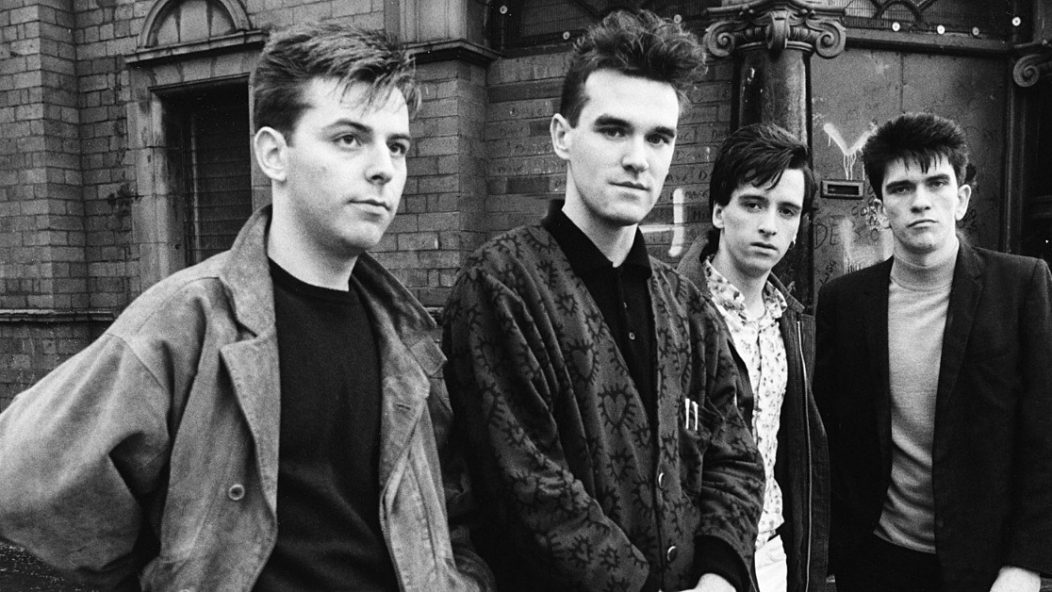
10 most criminally underrated songs from The Smiths
The Smiths are one of the most influential rock bands ever. Blurring the lines between emo and indie rock with their distinctive jangly guitar lines sitting under Morrissey’s emotive poetry, they continue to soundtrack generations of teenage angst.
The band released four studio albums in their five years together, before splitting at the height of their power. They never reunited, with Johnny Marr and Morrissey still trading blows in the press.
Read more: Every Smashing Pumpkins album ranked: From worst to best
Today, big songs like “There Is A Light That Never Goes Out”, “This Charming Man”, “Panic” and “Heaven Knows I’m Miserable Now” are still cold-stone smashes and the band remain the go-to group to soundtrack brooding coming-of-age films. But Morrissey’s outspoken, hate-fueled political views have made The Smiths a difficult band to love in 2023.
Still, it’s hard to deny the sheer talent and potent chemistry that Morrissey, Marr, drummer Mike Joyce and bassist Andy Rourke managed to capture in their brief time together. Here are their 10 most overlooked tracks.
“I Won’t Share You” – Strangeways, Here We Come (1987)
The final song on the final The Smiths album is also one of the most delicate tracks the band ever released. Over a gentle acoustic guitar, Morrissey confidently breaks up with a partner with not an ounce of regret. In an ideal world, it could also be seen as Morrissey’s parting words to the rest of the band with hopeful lyrics like “I’ll see you somewhere, I’ll see you sometime” while his refusal to “share” could be one final jab at Marr, who at this point in The Smiths’ career had already started collaborating with other artists. It’s a tender goodbye.
“Paint A Vulgar Picture” – Strangeways, Here We Come (1987)
The swaggering “Paint A Vulgar Picture” sees The Smiths at their most furious. Over lush, blossoming guitar, Morrissey takes deliberate aim at the music industry. “At the record company meeting, on their hands – a dead star,” he croons at the start of the song, with the rest of the track dripping in just as much venom.
“I Know It’s Over” – The Queen Is Dead (1986)
The opening track to The Smiths third album sees Morrissey delivering one of his finest ever vocal performances, with even a cover by Jeff Buckley failing to steal the spotlight. Dripping in tender sadness, the power ballad puts the fraught lyrics about heartbreak front and center, while the bombastic guitar work plays out behind them. Never wanting to be too obvious though, “I Know It’s Over” also acts as an admission of ego and sees the protagonist of the track taking blame for their own loneliness.
“Half A Person” – The World Won’t Listen (1987)
For all his bluster nowadays, “Half A Person” sees Morrissey at his most desperate. A cutesong about crushing teenage inaction, the track acts as an sort of origin story for The Smiths vocalist. “Sixteen, clumsy and shy that’s the story of my life,” he sings over a jubilant guitar line after telling the audience about unrequited love. It would be pathetic if it wasn’t so pretty.
“Handsome Devil” – Hatful Of Horrow (1984)
One of the hardest songs The Smiths ever penned, the song only exists in live form as a gleeful, sexually-charged song about the abuse of power. It’s apparently one of the first four tracks the band ever wrote together and their fearlessness was clearly present from day one.
“Well I Wonder” – Meat Is Murder (1985)
A beautifully sad song, Morissey’s vocals have a haunting, almost dream-like vulnerability to them but the rest of the band do a lot of the heavy lifting. Joyce’s drumming is urgent, yet refrained while guitarists Marr and Rourke lock in together to create a swaying dance that only adds to that sense of otherworldly magic.
“A Rush and A Push and The Land is Ours” – Strangeways, Here We Come (1987)
The opening track to The Smiths final album set the tone for the bizarre, challenging record that was about to unfurl. Inspired by ‘50’s American pop star Reparata, “A Rush and A Push and The Land is Ours” features no guitar, with Marr wanting to break out of the “jangly” box his playing had been put in. Instead, the groove-driven track relies on electric piano and clever work by the rhythm section of the band to create a surprisingly jaunty number about immigration.
“Is It Really So Strange?” – Louder Than Bombs (1987)
One of the first tracks The Smiths wrote following the success of The Queen Is Dead, the band never found a recording that did it justice so scrapped it in favor of other tracks. However it was revived during a session for John Peel and later released on compilation album Louder Than Bombs. Pulling from ‘50’s rock ‘n’ roll, the energetic, hip-shaking track sees Morrissey telling a bizarre story about belonging and nun-killing.
“Shoplifters Of The World Unite” – Louder Than Bombs (1987)
A rumbling, snarling track that took influence from Bruce Springsteen And The E Street Band’s guitarist Nils Lofgren, there’s a real sense of menace throughout “Shoplifters Of The World Unite” with Marr’s guitar-playing giving it a deliciously bombastic edge with that solo. Still, it’s got that glam-rock sheen that many of the best Smiths songs are known for.
“You’ve Got Everything Now” – The Smiths (1984)
The second track from The Smiths’ self-titled debut sounds as rough and ready as the rest of the tracks from that era, but there’s an intensity and a vulnerability to it that defies the scrappy recordings. Flickering between big, upbeat moments of hope and desperate fits of misery, with guitar and vocals jostling for attention throughout, “You’ve Got Everything Now” features nods to everything that made The Smiths such a force.










